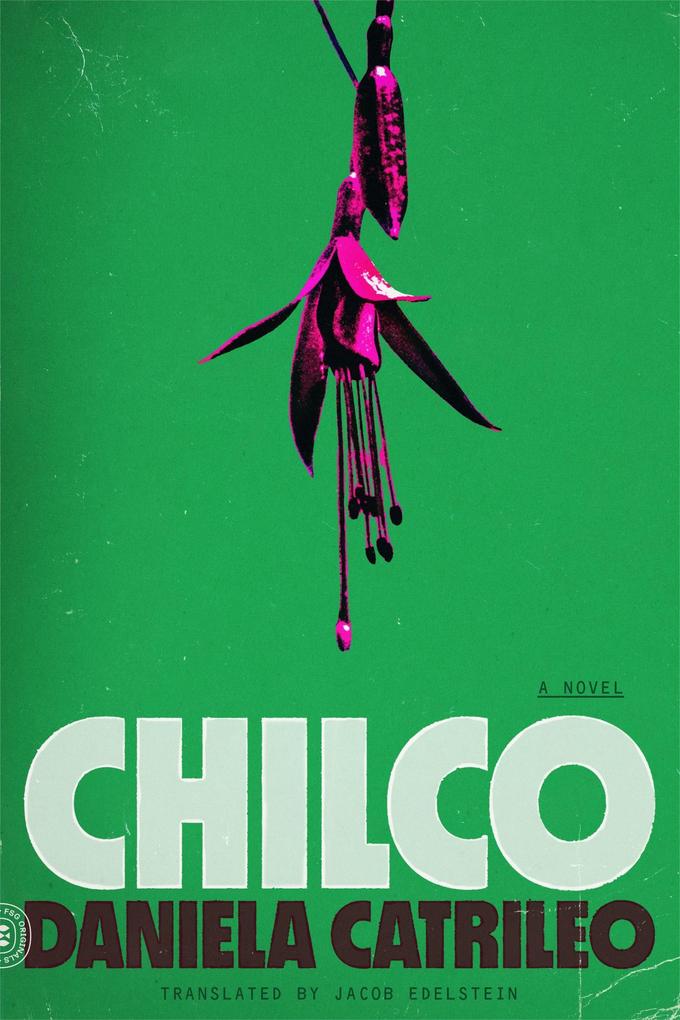
Zustellung: Do, 04.09. - Mi, 10.09.
Versand in 3-4 Wochen
VersandkostenfreiA near-future fable about love, life, and friendship in a world that's coming apart.
Chilco is the name of Pascale's home island. It is also the Mapudungun word for fuchsia: a word that evokes tropical lushness, wetness, the deep greenness of the forest. Pascale's partner, Marina, grew up in the vertical slums of Capital City, a place scarred by centuries of colonialism and now the ravages of feckless developers. Every day the couple fear a sinkhole will open up and take with it another poor neighborhood, another raft of desperate refugees from the hinterlands: the indigenous, the poor, who are toiling for an all-consuming machine that is devouring the earth from beneath their feet.
When they finally flee the collapsing city to live in Chilco, are they escaping from the crushing weight of centuries of colonial repression that have eroded indigenous memories, language, and culture, or are they merely stepping into a twisted, lush new version of it? From her first days in this place where she's supposed to feel safe and at home, Marina can't avoid the feeling that everything is decaying around her-there is a smell of putrefaction in the air that no one except her can detect; there are seismic rifts that the political cruelties of the times have opened up in her own relationship with Pascale; and she is haunted by insistent memories of her past.
In Chilco, Daniela Catrileo's baroque, tropical jeremiad, the wounds of capitalism and empire inflict themselves on the person and on the land, but linger most devastatingly in language and memory. Indigenous Mapudungun and Quechua words, history, and cosmology form the chorus to this tropical fever dream of life, love, death, and friendship.
Mehr aus dieser Reihe
Produktdetails
Erscheinungsdatum
15. Juli 2025
Sprache
englisch
Untertitel
A Novel.
4 Black-and-White Images in Text.
Sprache: Englisch.
Seitenanzahl
274
Reihe
FSG Originals
Autor/Autorin
Daniela Catrileo
Illustrationen
4 Black-and-White Images in Text
Verlag/Hersteller
Produktart
kartoniert
Abbildungen
4 Black-and-White Images in Text
Gewicht
204 g
Größe (L/B/H)
190/125/20 mm
ISBN
9780374616502
Pressestimmen
"If the imposition of new ecologies was integral to the European colonization of the Americas, any process of resistance and decolonization must be ecological, too. It's in poetry and fiction that the imagination for such a thing could take root-and Catrileo understands this well. Chilco's imagistic and documentary structure, its radical mixture of poetry and fiction, is held together by the novel's emphasis on the ecology of the island . . . For her and her characters, it's not the future that flashes tantalizingly on the horizon, but the possibility of truly going home." -Caroline Tracey, The New Republic
"Complex, lyrical and poetic . . . Catrileo accomplishes so much in fewer than 300 pages . . . Edelstein's translation handles this language play well . . . The prose alone makes it a must-read. ." -Tanya Shirazi Galvez, Pittsburgh Post-Gazette
"Impressive . . . Catrileo keeps the novel afloat with razor-sharp observations on the city's exploitive colonial history and staggering decay. It's a rewarding story of chosen family." -Publishers Weekly
"[E]ach chapter is a miniature mosaic . . . Chilco is a spellbinding fever-dream, swirling with socio-political conversations, mysteries, and self-reclamations . . . Daniela Catrileo and Jacob Edelstein may have just offered the literary canon an end-of-the-world, post-capitalism, post-empire survival manual it did not necessarily expect but so desperately needs." -Nicole Yurcaba, Southern Review of Books
Bewertungen
0 Bewertungen
Es wurden noch keine Bewertungen abgegeben. Schreiben Sie die erste Bewertung zu "Chilco" und helfen Sie damit anderen bei der Kaufentscheidung.











